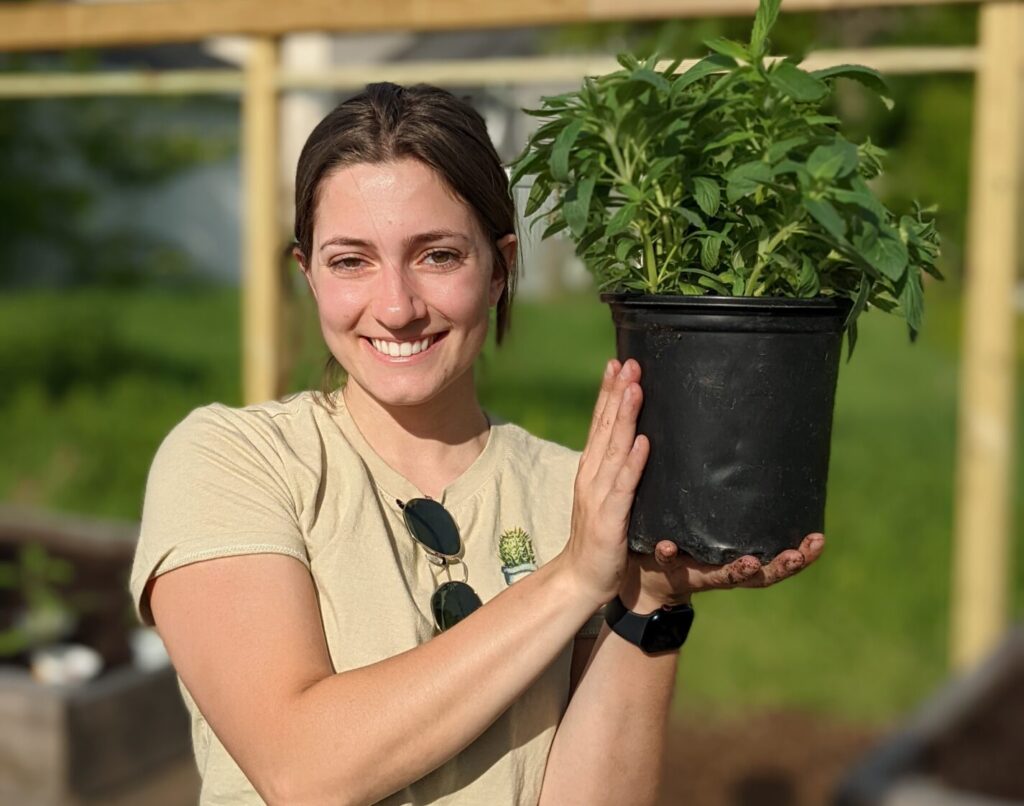Hello, fellow friends of pollinators, my name is Vanessa Dawley and I am this summer’s Adirondack Pollinator Project intern. My pronouns are she/her, I am a rising senior at Colgate University and a staff member of the University’s Outdoor Education department. Each year, Colgate offers a pre-orientation program where staff members lead freshmen students on an outdoor trip within the Adirondacks from anything to backpacking, canoeing, or rock climbing. Within this program trip leaders act in roles of stewardship for outdoor environments, teaching about a range of topics including Indigenous history, local communities, and leave no trace principles. Stewardship is something that I consider one of my core values and it was this familiarity seen in the mission statement of the Pollinator Project that drew me towards it.
My first introduction to the AdkAction community was bright, compassionate, and inspiring. The Keeseville office is filled to the brim with ideas and creativity. On the very first day I was able to get my hands dirty at the local Keeseville community garden installing native plants. I soon met local individuals teaming up with me in the pollinator project assistance program and with the pollinator plant sales. The sale is a critical part of the Adirondack Pollinator Project because it empowers individuals with new knowledge about native plants, pollinators, and habitat protection.
As the pollinator project intern, I am one of the primary advocates for the needs of pollinators. The relationship between native plants, birds, bees, butterflies, wasps (please show the wasps some love), moths, and more is one of my priorities. I tend to the home base of operations on the Uihlein Farm Greenhouse to ensure that we are providing the healthiest plants to folks who are creating beautiful waypoints for pollination. In order to create a workspace that supports our mission and shows our thanks to the Uihlein Foundation, Master gardener Lisa Salamon and I have installed a pollinator garden in front of the Uihlein Foundation greenhouse.
Our garden symbolizes the entire project’s aims of education, empowerment, and advocacy by reimagining a natural space to reflect the needs of pollinators. Native plants and pollinators have a symbiotic and mutually beneficial relationship. Plants provide pollen or nectar to the pollinators, which spread their seeds so that they can grow far outside the current garden and increase biodiversity. Biodiversity creates stabilization that provides a safe world to people and nature. As rates of native species continue to decrease in response to human activity, humans are increasingly responsible for conserving current biodiversity and working to restore damaged ecologies. When thriving, this pollinator garden does both by giving pollinators a waypoint along their journey and facilitates native plant growth. One of my goals for the summer is to create educational templates for others to use in their own spaces to spread awareness of pollinator conservation. The framework of community-based research emphasizes passing down knowledge through local networks so that more voices are able to contribute to educating one another by bringing a diversity of identities and lived experiences to the table. Not only does the pollinator project directly educate individuals about the importance of protecting pollinators, but it also empowers them to educate others, widening the circle of knowledge and reducing human hierarchies over nature.





